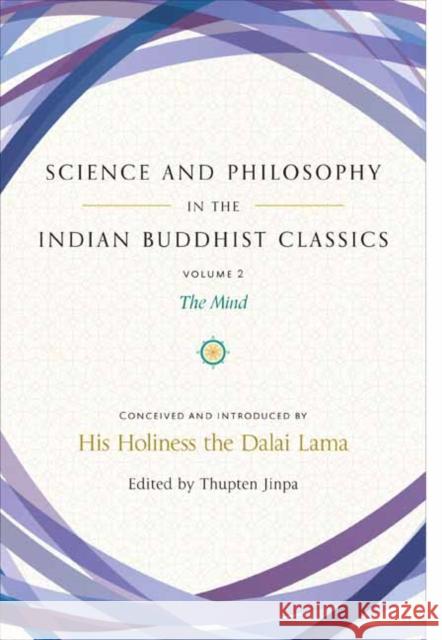Science and Philosophy in the Indian Buddhist Classics: The Mind, Volume 2 » książka
topmenu
Science and Philosophy in the Indian Buddhist Classics: The Mind, Volume 2
ISBN-13: 9781614294740 / Angielski / Twarda / 2020 / 576 str.
Explore the ancient science of mind in this unique sourcebook conceived by Dalai Lama from the scientific observations found in classical Buddhist treatises.
Science and Philosophy in the Indian Buddhist Classics compiles classical Buddhist explorations of the nature of our material world and the human mind and puts them into context for the modern reader. This ambitious four-volume series, a major resource for the history of ideas and especially the history of science, has been conceived by and compiled under the visionary supervision of His Holiness the Dalai Lama himself. It is his view that the explorations by the great Indian masters of northern India in the first millennium CE still have much that is of interest to us today, whether we are Buddhist or not, and these volumes make those insights accessible. Volume 2: The Science of the Mind focuses on the science of mind. After an overview of Buddhist conceptions of consciousness, the volume explores topics that overlap with the contemporary disciplines of cognitive science, psychology, emotion research, and philosophy of mind. Major themes include (1) the distinction between sensory and conceptual processes and the pan-Indian notion of mental consciousness; (2) mental factors--specific mindstates such as volition, attention, and mindfulness--and how they relate to one another; (3) the unique tantric theory of subtle levels of consciousness and their connection with the subtle energies, or "winds," that flow through channels in the human body and with the dissolution of both body and mind at the time of death; (4) the seven types of mental states and how they affect the way mind engages its objects; and (5) styles of reasoning, which is understood as a source of knowledge. In the final section, the volume offers what might be called Buddhist contemplative science, a presentation on the classical Buddhist understanding of the psychology behind meditation and other forms of mental training. To present these specific ideas and their rationale, the series weaves together passages from the works of great Buddhist thinkers like Asanga, Vasubandhu, Nagarjuna, Dignaga, and Dharmakirti. Both volumes contain an introduction from His Holiness the Dalai Lama that outlines scientific and philosophical thinking in the history of the Buddhist tradition. Each of the six major topics in each volume is also introduced with an essay to provide additional context for Western readers. Those in volume 2 are by John D. Dunne, distinguished professor of Buddhist philosophy and contemplative practice at the University of Wisconsin. These essays connect the contemporary reader to broader debates and Western parallels and provide helpful suggestions for further reading.










